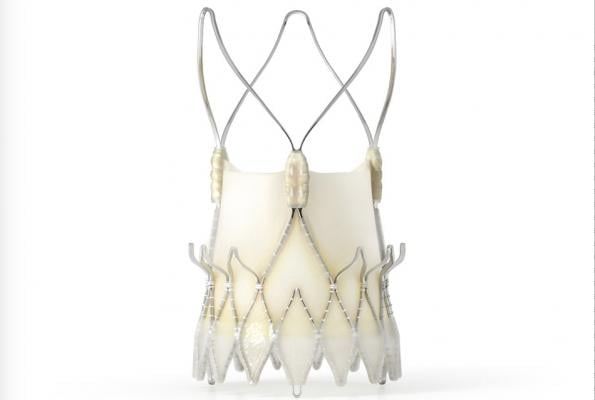
October 2, 2019 – The first randomized trial to compare the safety and efficacy of the new Boston Scientific Acurate neo transcatheter heart valve with the Edwards Lifesciences Sapien 3 transcatheter aortic valve replacement (TAVR) device did not meet non-inferiority in patients with severe aortic stenosis.
Findings were reported at the 2019 Transcatheter Cardiovascular Therapeutics (TCT) scientific symposium. The study was also published simultaneously in The Lancet.[1]
Between February 2017 and February 2019, a total of 739 patients with severe, symptomatic aortic stenosis at increased surgical risk were randomized 1:1 to transfemoral TAVR with the Acurate neo (n=372) or the Sapien 3 (n=367) system at 20 European sites. Clinical follow-up information at 30 days was available for 98.9% and echocardiographic follow-up for 98% of the total study population.
“Acurate neo did not meet non-inferiority compared to the Sapien 3 device regarding the primary composite safety and efficacy endpoint at 30 days,” said Jonas Lanz, M.D., MSc, with the department of cardiology at Bern University Hospital – INSELSPITAL. “An early composite safety and efficacy endpoint proved useful in discriminating the performance of different TAVR systems.”
The study was designed to investigate non-inferiority of the primary endpoint, which was a composite of safety and efficacy derived from the Valve Academic Research Consortium-2 criteria and included all cause death, any stroke, life-threatening or disabling bleeding, major vascular complications, coronary artery obstruction requiring intervention, acute kidney injury stage 2 or higher, valve-related dysfunction requiring repeat procedure, re-hospitalization for valve-related symptoms or congestive
heart failure, moderate or severe prosthetic valve regurgitation or prosthetic valve stenosis at 30 days.
The primary endpoint rate in the intention-to treat cohort for Acurate neo was 23.7% compared to 16.5% with Sapien 3 (P non-inferiority = 0.42), which did not meet non-inferiority. The differences between the two TAVR devices were mainly driven by moderate or severe paravalvular regurgitation and stage 2 or 3 acute kidney injury in favor of the Sapien 3 device.
SCOPE I was an investigator-initiated and conducted study funded by a dedicated research grant from Symetis SA, Ecublens, Switzerland (part of Boston Scientific). Dr. Lanz had nothing to disclose.
Find information on other late-breaking TCT trials
Reference:


 January 05, 2026
January 05, 2026 









